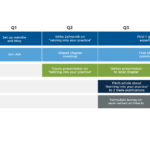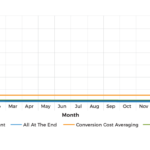 Welcome, everyone! Welcome to the 68th episode of the Financial Advisor Success Podcast!
Welcome, everyone! Welcome to the 68th episode of the Financial Advisor Success Podcast!
My guest on today's podcast is Heather Fortner. Heather is a partner and the Chief Operating Officer of Signature FD, an independent RIA that calls itself a "financial design" firm and now serves more than $3 billion of AUM for nearly 1,000 clients.
What's unique about Heather's firm, though, is not just the nature of its holistic "financial design" process that aims to help clients with all their types of wealth – both money, time, and relationships – but serves its clients by organizing the firm and its advisory teams into "communities", or what essentially are a series of various niches, all under the Signature FD umbrella, including SignatureLaw, SignatureHealth, SignatureEntrepreneur, and more.
In this episode, we talk in depth about why and how Signature FD transitioned from a broad-based generalist firm into a series of niche communities, the way it has adopted Angie Herbers' "Diamond Teams" structure to grow and develop their advisor talent, the Entrepreneurial Operating System it uses – built from Gino Wickman's book "Traction" – to help ensure that every employee understands how they connect to their department's 1-year goals, the firm's 1-year goals, and the long-term outcome for the firm, and why SignatureFD uses an Industrial Psychologist as a part of the final screening process for everyone the firm hires to help really ensure they're a good long-term fit.
We also talk about Heather's own career track in the firm, from joining as a "client care associate" in the operations team nearly 15 years ago, to becoming the Director of Operations and later the Chief Operating Officer, getting involved in several industry Executive Leadership programs, and eventually making partner in the firm... in a world where it's still relatively rare for such "non-revenue-producing" members of the firm to have an opportunity to become a partner, especially women, despite the value that good executive leadership in operations can create for a firm.
And be certain to listen to the end, where Heather talks about how advisors can identify the "right" firm to stick with in the long run, and the skills that she believes are most important for everyone, but especially women, to develop to climb the career track in an independent advisory firm, and why she believes that the challenges of family dynamics and caring for children may be one of the biggest and most understated issues limiting the career growth of women in independent advisory firms today.
So whether you are interested in learning more about how large firms can serve multiple niche markets, how to best structure teams to grow and develop talent, or are interested in how non-revenue-producing employees can progress to executive leadership positions in an advisory firm, I hope you enjoy this episode of the Financial Advisor Success podcast!









 Welcome, everyone! Welcome to the 67th episode of the Financial Advisor Success Podcast!
Welcome, everyone! Welcome to the 67th episode of the Financial Advisor Success Podcast!
